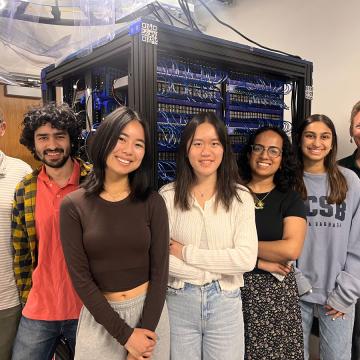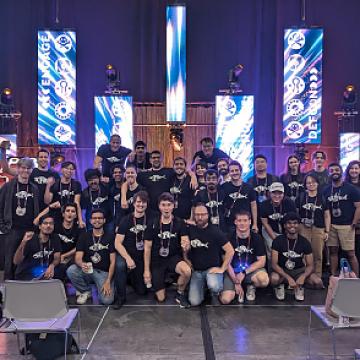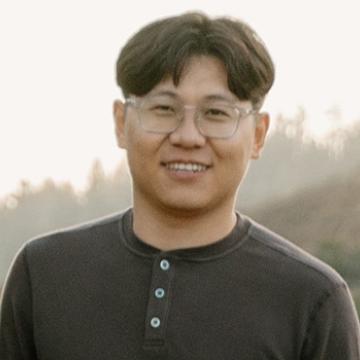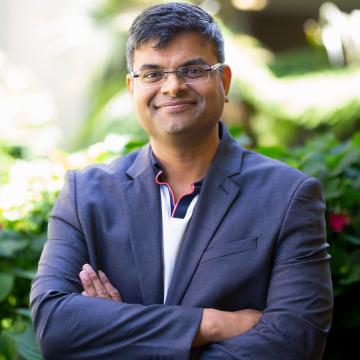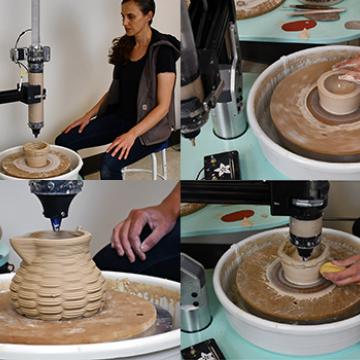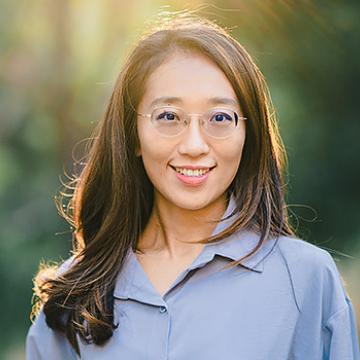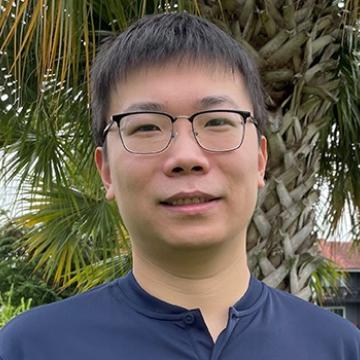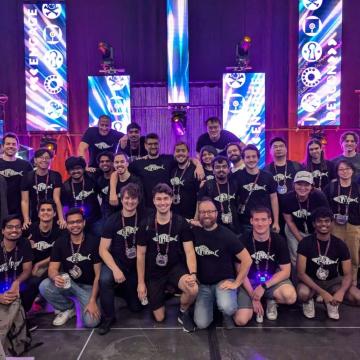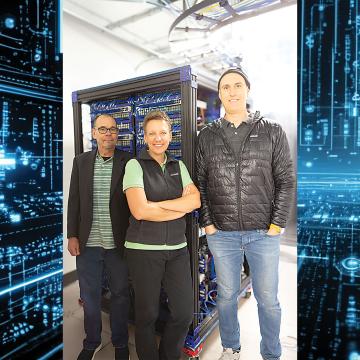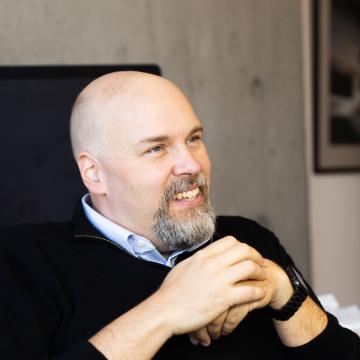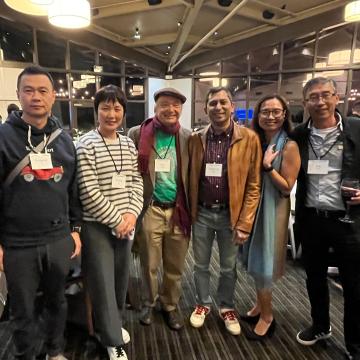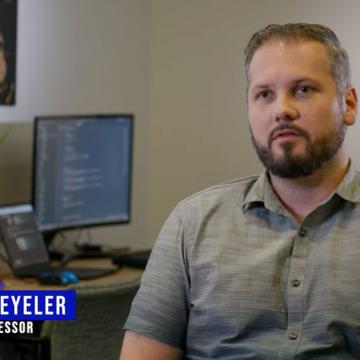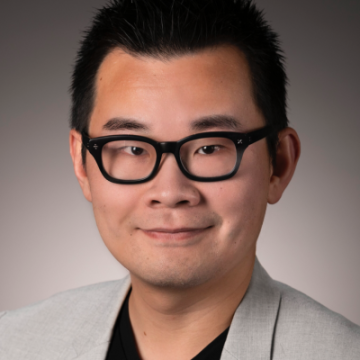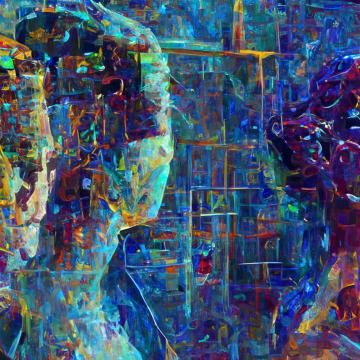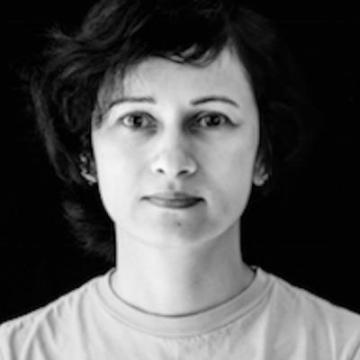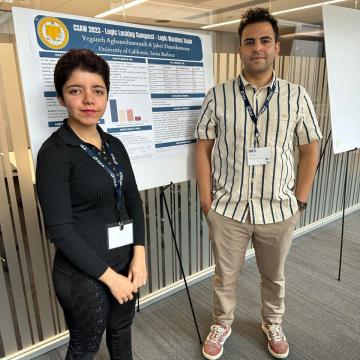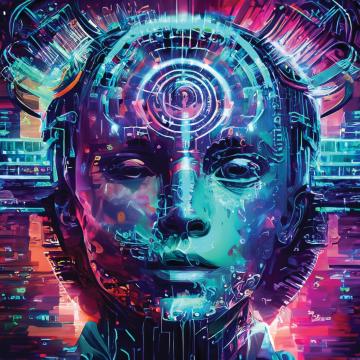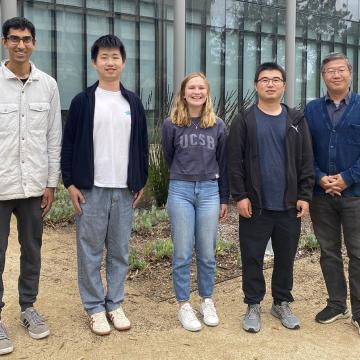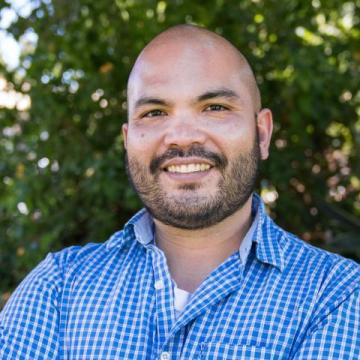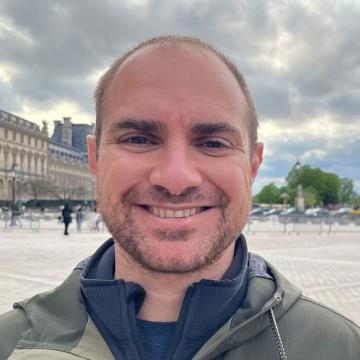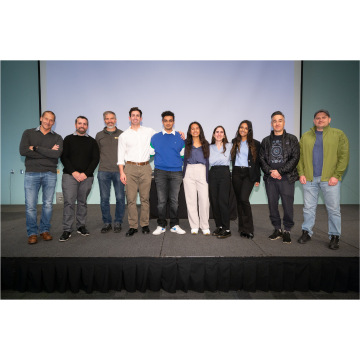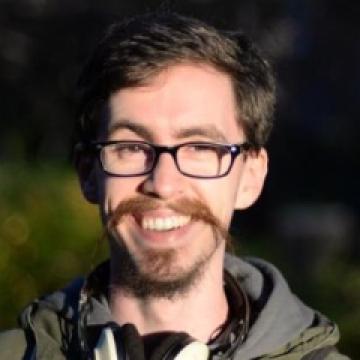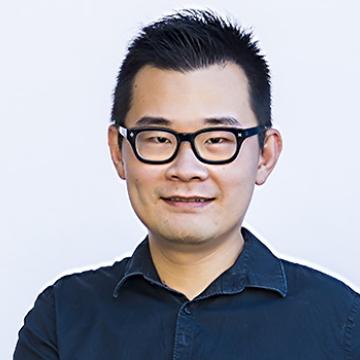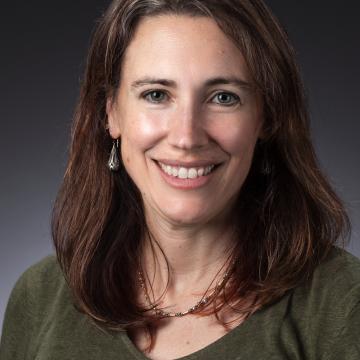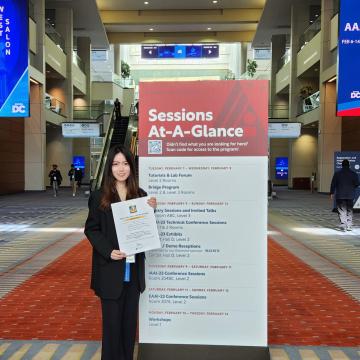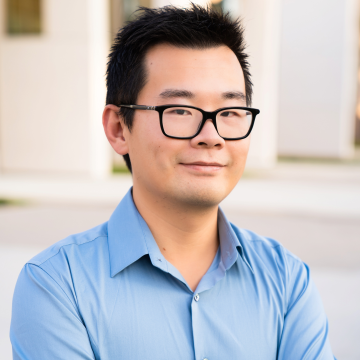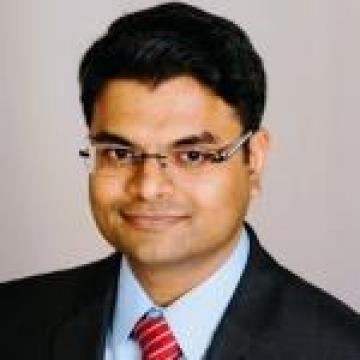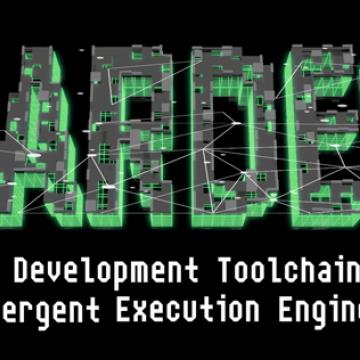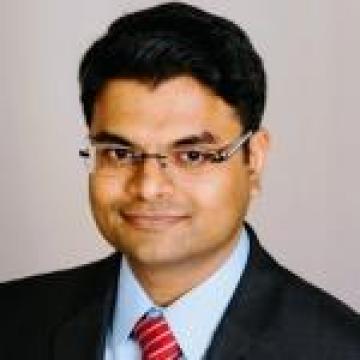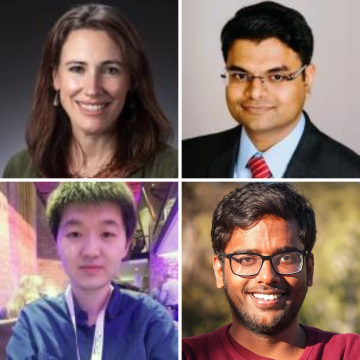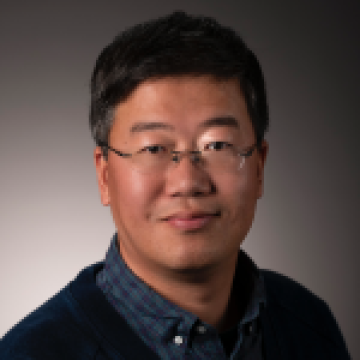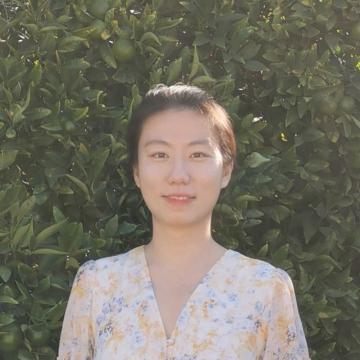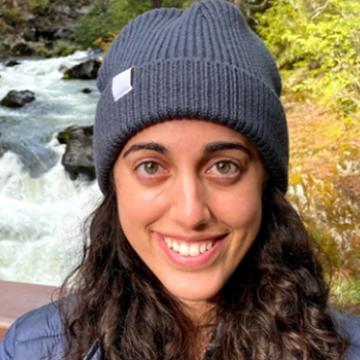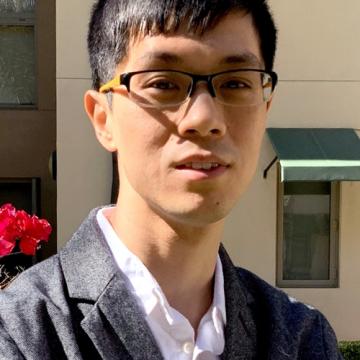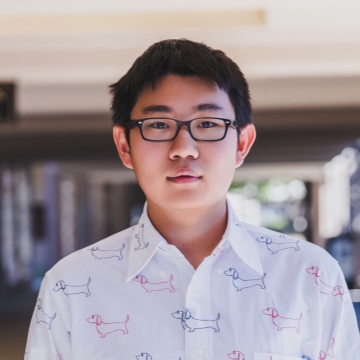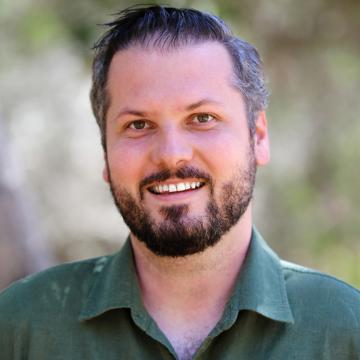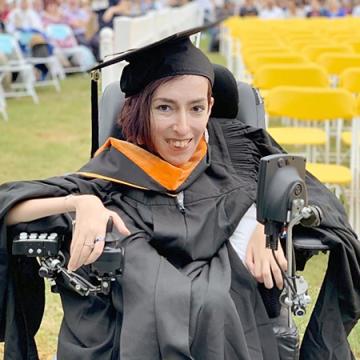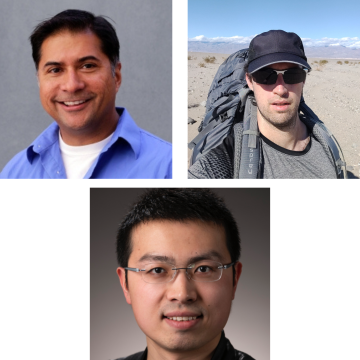A few years ago, as a demonstration of the power of a relatively simple technology, software giant Oracle built a cluster of 1,050 Raspberry Pi 3iPB+ computers. The low-cost, low-power, credit-card sized machines are widely used, normally as individual units or in a small cluster of several units, to explore, learn, and teach computing and programming, and to perform certain kinds of research-related computational tasks.
Now Oracle’s big cluster, the largest such assemblage ever built, has found a new home at UC Santa Barbara. About a year ago, computer science professors Chandra Krintz and Rich Wolski received the cluster as a donation from Oracle, which had retired it from making the rounds at computer trade shows.
Wolski explains: “The Raspberry Pi was designed to function with the Internet of Things [IoT]. It’s used for a lot of experimentation and deployment of fairly basic systems. They're very simple and inexpensive, they operate on very low power, you can program them using a large ecosystem of open-source software, and they are compatible with a wide variety of hardware devices and sensors.” It’s an interesting device, Wolski says, but on the low end of performance. “Oracle decided to do an experiment by building a large collection of these things in a small package. They would then ship the assembly to trade shows to show how effectively they were able to engineer a very big, very low-power, very low-technology system to run their software.”
After two years of working on their Cyber Reasoning System (CRS), called ARTIPHISHELL, the Shellphish team, which was formed as a hacking collecting at UC Santa Barbara in 2005, will submit their system to the Artificial Intelligence Cyber Challenge (AIxCC) team on June 26. The system and those of the other six finalist teams will then be evaluated, and the results presented to the public at the annual DEF CON event, to be held in Las Vegas in August.
Each of the seven teams participating in the final competition has already received $2 million by qualifying in the AIxCC semifinal round, which was held in August 2024. First prize for the final is $4 million, second prize is worth $3 million, and the third-place team will receive $1.5 million.
“As the competition is coming to a close soon, it is worth reflecting on the long journey to this point and acknowledging the dozens of students who have been involved,” said Kruegel. “It is really impressive what the team has achieved, and I am immensely proud of the ingenuity that went into our system, the academic breakthroughs that resulted, and the sheer amount of work and engineering effort. I truly believe that we have meaningfully advanced the state-of-the-art in software security. Of course, I hope that we will win, but I believe that the experiences that our students had and the lifelong bonds such a competition forges are the true reward.”
Five years after completing his PhD in computer science at UCSB, Xin (Eric) Wang is returning to campus as an assistant professor in the Computer Science Department. He earned his bachelor’s degree from Zhejiang University and, following the completion of his PhD, became an assistant professor in the Computer Science and Engineering Department at UC Santa Cruz. Aligning with his research interest in machine learning, Wang is also Head of Research at Simular Inc., a startup building computer use agents. Celeste Natera spoke with him earlier this month.
Arpit Gupta, assistant professor in the Computer Science Department at UC Santa Barbara, knows as well as anyone that not all networks are created equal. They range widely, from large, complex, sophisticated systems like those at government agencies or major corporations, which have extensive physical infrastructure and armies of people to support them, to much smaller systems, such as those that provide internet connectivity on Indian reservations or sparsely populated rural areas, where a much smaller and simpler system might be managed by a single person using far less sophisticated, or even repurposed, hardware.
The naturally complementary components of computer-aided design and 3D printing are used today by millions of people around the world to create objects of every kind for every conceivable purpose. Users range from independent craftspeople doing low-volume manufacturing, to research scientists who use digital fabrication to develop and characterize experimental samples, to hobbyists working at home.
That affinity between the two elements in the digital design and “making” processes, however, is not always reflected in reality. Currently, says Jennifer Jacobs, an assistant professor in the Media Arts & Technology program and a UC Santa Barbara Computer Science Department affiliated faculty member, “Digital fabrication technologies function in a rigid way that makes it very difficult to do anything that involves custom workflow or manual intervention during the process of making an object.”
UC Santa Barbara computer science assistant professor Murphy Yuezhen Niu, who is also a physicist, has been awarded a prestigious CAREER Award from the National Science Foundation to support her work in quantum computing.
The five-year, $630,000 grant will fund Niu’s project, “Quantum Pulse Processing — Robust and Programmable Quantum Control for Near-Term Quantum Simulation,” which is aimed at advancing a new paradigm in quantum computer engineering.
“We are leveraging advancements in the emerging area of quantum signal processing to introduce a new paradigm, called quantum pulse processing, to bridge the gap between existing gate-based approaches and purely analog approaches to quantum computing,” Niu wrote in her proposal.
A physicist by training, Niu aims to connect how quantum computers are built and how they are programmed. Current machines operate in a noisy, error-prone range known as the “intermediate scale,” typically consisting of 100 to 100,000 qubits. While they are usually programmed using discrete digital gates, their underlying operations are governed by continuous analog control pulses.
Yuheng Bu, currently an assistant professor in the Electrical and Computer Engineering Department at the University of Florida, will be joining the UC Santa Barbara College of Engineering’s Computer Science Department in July 2025. He earned his bachelor’s degree in electronic engineering from Tsinghua University and completed his PhD in electrical and computer engineering at the University of Illinois at Urbana-Champaign, he then went on to serve as a postdoctoral research associate at the Massachusetts Institute of Technology.
Learn more about his research and his plans for UCSB in this CoE interview.
From the Santa Barbara Independent: "Beneath the surface of the second-floor lab in UC Santa Barbara’s Harold Frank Hall, a pod of sharp minds is moving toward a $4 million prize and the expansion of artificial intelligence (AI). Shellphish, UCSB’s elite hacking team, has plunged deep into a two-year competition, the Artificial Intelligence Cyber Challenge (AIxCC) sponsored by the Defense Advanced Research Projects Agency (DARPA). "
What is it?
A supercomputer consisting of 1,050 Raspberry Pi 3B+. The next largest system that we know of is a cluster of 750 at Los Alamos National Lab.
Why is it?
The short answer, according to creator Chris Bensen in his series of videos detailing the project, is “because it kicks a**.” The longer answer lies in Oracle’s support for a series of outside-the-box projects designed to attract the attention of engineers and developers.
How did it get to UCSB?
It started with PhD student Animesh Dangwal’s internship at Oracle Labs
In December, UCSB chancellor Henry Yang announced the appointment of UCSB computer science professor Timothy Sherwood as the new dean of the College of Creative Studies (CCS), saying, “In his more than two decades at UC Santa Barbara, Professor Sherwood has established an outstanding record of service to our campus community.”
Congratulations to Professor Christopher Kruegel for being named a 2025 IEEE Fellow for contributions to security, malware detection, and vulnerability analysis. The grade of Fellow recognizes unusual distinction in the profession and is reserved for a person with an outstanding record of accomplishments in any of the IEEE fields of interest. The accomplishments that are being honored have contributed importantly to the advancement or application of engineering, science, and technology, bringing the realization of significant value to society at large.
Thanks to all the UCSB Computer Science alumni who joined us this weekend at our first 2024 Computer Science Alumni event in Palo Alto, CA. We enjoyed sharing with you the latest news from the department and learning about your many successes in the field. We look forward to many more of these events in the future!
The National Library of Medicine and the National Institutes of Health sent a video crew to Santa Barbara recently to highlight the work Michael Beyeler, an assistant professor in UCSB’s Computer Science Department. The result is a fascinating preview of a transformative technology that could one day have a big impact.
“There’s up to six million people worldwide who live with profound blindness,” Beyeler explains in the newly released video, “and the idea of a visual prosthesis is to replace lost functionality with an implant. Even though these devices are already out there, the vision they provide is rather limited.”
Professor William Wang has been selected for the 2023 IEEE Signal Processing Society’s 2023 Pierre-Simon Laplace Early Career Technical Achievement Award, which honors individuals who have made significant technical contributions within their field early in their career. The award recognizes Professor Wang for “contributions to the development of scalable algorithms in natural language processing.”
UC Santa Barbara Computer Science is set to make a strong showing at this year’s Neural Information Processing Systems (NeurIPS) annual meeting, with 20 papers accepted at the prestigious conference. With contributions from professors William Wang, Yu-Xiang Wang, Shiyu Chang, and Michael Beyeler on topics as wide-ranging as text-to-image evaluation, privacy, and predictive models of visual cortex neural activity, UCSB’s efforts mirror the broad scope of the conference itself.
Congratulations to Misha Sra, assistant professor in the Computer Science Department, for being one of nine UCSB faculty recipients of the 2023-24 Hellman Fellowship. The award is designed to support early- to mid-career faculty who have shown a capacity for great distinction in their work. Also honored this year is affiliated faculty member Nina Miolane of the Department of Electrical & Computer Engineering.
Congratulations to UCSB’s Logic Wardens team for taking second place in the CSAW’23 Logic Locking Competition at NYU!
The CS departments’ committee on Diversity, Equity, and Inclusion has announced the launch of the PhD Application Support Program (ASP). This student-led, volunteer-driven initiative offers a pre-application review service, aiming to support aspiring CS scholars from underserved backgrounds. The PhD ASP provides mentorship and application review, where current PhD students or postdocs from the CS department offer feedback on resumes, CVs, and statements of purpose. All volunteers undergo specialized training to ensure applicants receive insightful advice.
Congratulations to UCSB's GauchoChat team for taking first place overall and $250,000 in Amazon's Alexa Prize SocialBot Grand Challenge 5!
The Broadening Participation in Computing demonstration project, a collaboration between California State University Chico and UC Santa Barbara, has been awarded a National Science Foundation grant of $300,000. Led by UCSB’s associate teaching professor Richert Wang and Chico’s associate professor Kevin Buffardi, the project team will focus on improving representation, relevance, and equity in computer science by framing high school instructional practices from the perspectives of women and Hispanic students.
Congratulations to George Tzimpragos for the ACM SIGARCH/IEEE CS TCCA Outstanding Dissertation Award!
summit.cs 2023 took place last Wednesday, March 15th. TRANQUILITEA (partner: WellHealth) placed first, while FAT STACKS (partner: Allthenticate) placed second. Finally, OVERSEA (partner: NavSea) landed third place. Congratulations!
CS Professor Jonathan Balkind received a $630,000 NSF Early Career award, to further his work in cloud computing application development. Congratulations!
CS Professor William Wang has been awarded the 2023 CRA-E Undergraduate Research Faculty Mentoring Award by the Computing Research Association (CRA).
CS Professor Elizabeth Belding's 1999 article on Ad hoc On-Demand Vector (AODV) has reached 30,000 citations. Congratulations!
PhD student Zichen Chen received the Innovative Application of AI award from the AAAI for her paper, “Efficient Training of Large-scale Industrial Fault Diagnostic Models through Federated Opportunistic Block Dropout”.
Congratulations to William Wang, who received the prestigious Karen Spärck Jones Award. Professor Wang will officially accept this award and deliver a lecture in Dublin in April 2023.
A paper coauthored by Professor Arpit Gupta has been awarded the Applied Networking Research Prize (ANRP) by the Internet Research Task Force (IRTF). This work also received the Best Paper Honorable Mention at ACM CCS in 2022.
Anisha Kabir received Honorable Mention for the Computing Research Association's (CRA) 2023 Outstanding Undergraduate Researcher Award.
A UCSB led team was one of the eight teams selected by DARPA for the Hardening Development Toolchains Against Emergent Execution Engines (HARDEN) program.
A paper coauthored by Professor Arpit Gupta has received the Best Paper Honorable Mention Award at the 2022 ACM Conference on Computer and Communications Security (CCS).
A paper by Udit Paul, Jiamo Liu, Professor Arpit Gupta and Professor Elizabeth Belding was awarded the Best (Long) Paper Award at the ACM Internet Measurement Conference 2022 (IMC 2022).
Professor Xifeng Yan will lead UCSB GauchoChat in the Alexa Prize SocialBot Grand Challenge 5. UCSB GauchoChat is one of nine teams selected to represent their universities and compete.
Congratulations to Yimeng Liu, who was named a finalist for the Qualcomm Innovation Fellowship. Yimeng was nominated for her joint-project on ultra-low bitrate compression with Stanford student Pulkit Tandon.
PhD student Sharon Levy has been invited to the esteemed Electrical Engineering Computer Science (EECS) Rising Stars program. This workshop empowers female scientists and engineers striving for academic careers in electrical engineering, computer science, and AI and decision making.
Congratulations to CS PhD Alumnus Wenhu Chen, who was named Canada CIFAR AI Chair. He is among 8 researchers across Canada creating a leading AI research ecosystem, particularly in AI for health, AI for energy and the environment, the fundamental science of AI, and the responsible use of AI.
Congratulations to PhD Student Fuheng Zhao, who received the esteemed Microsoft Research PhD Fellowship. This fellowship aims to recognize and empower the future of computing research talent.
Assistant Professor Michael Beyeler has received a $1.5 million NIH Director's New Innovator grant, to further his work on smart bionic eye vision. Michael aims to bring to the mainstream an AI-powered bionic eye that can generate artificial vision, in an effort to increase the quality of life for patients who are blind or visually impaired.
source: Santa Barbara News-Press
CS doctoral student Atieh Taheri was featured in the Santa Barbara News-Press for her research in spinal muscular atrophy, with the goal of helping others with her condition!
Congratulations to Shlomi Steinberg, Pradeep Sen, Ling-Qi Yan for receiving Best Paper Honorable Mention for their paper, "Towards Practical Physical-optics Rendering" at SIGGRAPH 2022!
